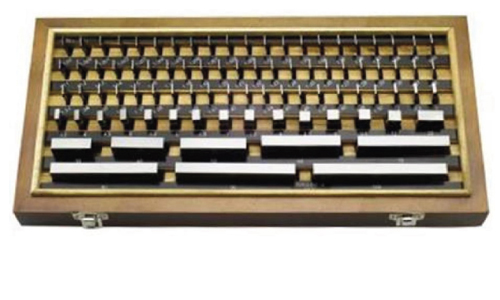METROLOGY AND CALIBRATION SERVICES
Calibration is a process of establishing the relationship between the values indicated by a measuring instrument against the values from a known measuring instrument that is traceable to the national and international standard. When feasible the instrument readings are adjusted to read correct readings as part of the calibration process. A calibration is performed under controlled environment and by trained and experienced calibration professionals. We calibrate various measuring instruments such as:
- Micrometers
- Vernier calipers
- Slip gauges (Kolb & Bauman)
- Various conventional/ custom gauges/ instruments
- Measuring rules/tapes
- Dial gauges
- Measuring Equipments Key
- We provide:
- New, Innovative Software Solutions
- On the top of the latest technology
- Highly trained technicians
- Inspiring new facility
- High Quality Inspection & Calibrations that you can trust at par with ISO17025
- Attentive to every detail
REDUCE YOUR RISK WITH AEROPRECISION (an AS9100D, ISO 9001:2015, IEC 17025:2005 certified)
>Calibration is often required by an organization's internal quality standards or by various international or national standards. Sometimes overlooked as the key role, proper calibration can reduce the risks to business or research. Regular calibration identifies, controls, and can even prevent changes in the accuracy of an instrument over time.
- If I am out of calibration, will I ship out-of-spec or unsafe product? How will my customers be affected?
- What type of liability could I incur from bad product or bad data?
- If you recall product from the field, how will it impact your costs and reputation?
- Will I reject good product? What is the impact of retracting published data and performance results?
- Are my research results or engineering analyses now questionable?
- Do I know how long I have been out of tolerance?
- When was the last calibration?
MEETING INTERNATIONAL STANDARDS
Calibrate your testing instruments to meet the latest international standards and you can be assured that your data and products are more readily accepted locally as well as around the world. The most universally used calibration standards are those published by ISO or ASTM, and AEROPRECISION (an AS9100D, ISO 9001:2015, IEC 17025:2005 certified) has a full suite of linear calibration methods designed to meet them as well as national and international standards. Our services are designed to ensure that your testing meets or exceeds the requirements of standards such as ISO/IEC 17025 and ISO 9001:2008
AEROPRECISION'S EXPERTISE WILL OPTIMIZE PERFORMANCE AND EXTEND USEFUL LIFE
Expert preventive maintenance of your equipment extends its useful life and reduces your costs. As the original designer and manufacturer of the equipment, AEROPRECISION (an AS9100D, ISO 9001:2015, IEC 17025:2005 certified) has the expertise to make the necessary adjustments or repairs so that the calibration is optimized. AEROPRECISION (an AS9100D, ISO 9001:2015, IEC 17025:2005 certified) calibrates low uncertainties of measurement and helps you minimize the uncertainties associated with your data and allow calibration of your instrument to its full potential.
WE MAKE LIFE EASIER FOR YOU
- We calibrate most types and brands of material testing machines.
- We calibrate linear parameters critical to obtaining good data from your testing instrument.
- We keep track of re-calibration dates, so we can call ahead of time, and schedule convenient and timely re-calibrations.
- Your data is well managed. Critical information about your equipment is stored in our databases for up to 5 years as well as all calibration data and reports.
- We ensure the best measurement accuracy.
WHAT IS ISO/IEC 17025?
ISO/IEC 17025 is a standard first issued in 1999 by the International Organization for Standardization and the International Electro technical Commission. It replaces a number of older standards including ISO/IEC Guide 25 and EN45001. This standard defines the technical competency and quality management requirements for calibration labs and testing labs. It is the single most important metrology standard for the test and measurement industry, and nearly all national standards bodies and accreditation agencies around the world have adopted it.
WHAT IS ACCREDITATION?
Laboratory accreditation is an independent, third party evaluation of a laboratory's competence to perform calibrations within their Scope of Accreditation, and includes verification that the lab's quality system will assure that competence is maintained. Laboratories are accredited to the requirements of ISO/IEC 17025. An integral part of the accreditation process is the technical evaluation of the laboratory's capability including verification that the laboratory provides measurement results that are traceable to appropriate national standards.
The accuracy of the electronic components used in all instruments drifts over time. The effects of time in service as well as environmental conditions add to this drift. At some point, the drift causes the instrument's uncertainty to become undefined, meaning the manufacturer no longer can predict the Uncertainty and guarantee measurement results. When this happens, you should return the instrument for calibration.
CALIBRATION INTERVALS
OUR INSPECTION /CALIBRATION FACILITIES - REFERENCE STANDARDS
- 'K' Grade Gauge Block set ,KOBA
- 'K' Grade angle Gauges/Long Gauge Blocks
- Grade '0' Granite Surface Plate
TRANFER STANDARDS
- 1. CMM - LK V 8.7.6 - Nikon
- 2. Profile Projector (Baty, UK)
- 3. Surface Hardness Tester (Wilson Hardness)
- 4. Surface Roughness Tester (Taylor Hobson)
- 5. Digital Height Gauge (Mahr)
- 6. Caliper Checker (Kolb & Bauman)
- 7. Monochromatic Light Source
- 8. Optical Flats/Parallels
- 9. 'K' Grade angle Gauges/Long Gauge Blocks
- 10. Micrometer Drum for Dial Gauge calibration
WORKING STANDARDS / INSPECTION
- 1. Bore Gauges (0.5 to 400 mm) - Mahr
- 2. Plunger Dial Indicator
- 3. Micrometer
- 4. Vernier Caliper
- 5. Dial Caliper
- 6. Angle Gauge Blocks
- 7. Level Dial Gauge
- 8. Bevel Protractor
- 9. Trisquare
- 10. Sin bar
Digital Micrometers

Digital Vernier Calipers
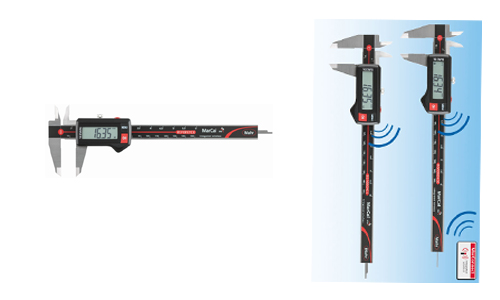
Slip Guages
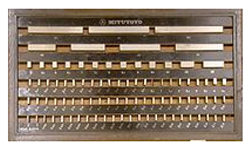
Digital Tape Measure

Grades

Digital Probe Indicator
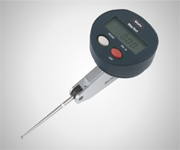
Digital Test Indicator
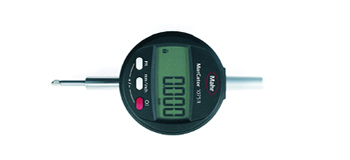
K Grade Gauge Block Set 'KOBA'
